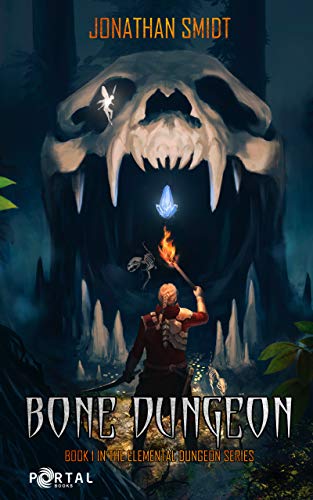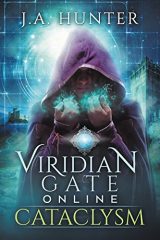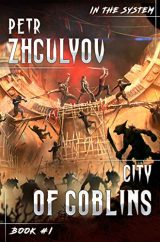Here Be Dragons: The Web Novel’s Accidental Travels into Otherwhere
Saturday , 21, January 2023 Uncategorized Leave a comment Otherwhere, Otherwhen, Otherwho, and Otherhow.
Otherwhere, Otherwhen, Otherwho, and Otherhow.
These are the explorations of the web novel medium, one devoted to fantastic worlds and adventures that take place anywhere but in the present.
Today, we’ll focus on genres of Otherwhere, that take readers to new worlds so unlike the current day. These worlds are physically new worlds, as opposed to the criminal, magical, martial, and/or social underworlds hidden among the bustle of today’s society.
Travelers in these genres may find themselves stuck in Russian popadantsy tales, Japanese isekai stories, or English-language litRPG game worlds. They may learn of new fantasies, of Systems, progressors, cultivation, and progression. Of accidental travelers and their adventures in new world.
Of a parallel world of fantasies to that offered by traditional publishing.
It is important to realize that the storytelling devices used in web novels are not original to the medium. Accidental travels have a long and distinguished history, in classics such as A Confederate Yankee in King Arthur’s Court, Gulliver’s Travels, The Divine Comedy, The Odyssey, Journey to the West, and countless legends, tales, and myth. What web novels do with these devices is popularize certain arrangements and settings.
Like all things Russian these days, separating fact from propaganda and counter-propaganda is an issue. Many critics muddy the waters by searching the popadantsy genre for reasons to blame or explain Russia’s current wars. Much useful systemization of the genre is lost to political commentary.
This is further exacerbated by the fact that English-language readers are more likely to seek out translations of Japanese, Chinese, and Korean works than Russian given the adjacency of East Asian web novels to anime, manga, and gaming. Regrettably, any overview is going to be basic at best and risks missing out on trends that have yet to be translated over. But the popadanets (accidental traveler) and his adventures are intertwined with the two great Systems found in web novels, even to the point of influencing English-language independent novels.
I am indebted to Marina Galina’s “Ressentiment and post-traumatic syndrome in Russian post-Soviet speculative fiction: Two trends” for describing the genre and the characters.
Of all the accidental travelers in web novels, the popadanets has the most freedom. Where others are whisked away to fantasy and game worlds, the popadanets may find himself hopping to the past or future of our world as well in a pulpy form of alternate history informed by the Russian historical reenactment scene. Like many web novel protagonists, the popadanets is, to put it kindly, a social reject, either an everyman who does not fit in or a trained specialist (soldier or reenactor) who is superfluous to society’s needs. But when transported to another world or time, the new setting reveals the hidden talents of the popadanets. The traveler may even be granted a special ability as he leaves the old world behind.
But what to do in the new world?
Many popadantsy tales meld the idea of “progressorship” to the traveler’s journey. This idea is influenced by Hard to be a God, by Arkady and Boris Strugatsky, and refers to the unshackling of scientific and social progress. Essentially, the popadants upends traditions and blind adherence to push forward the potential—usually materially—of the new world. Sometimes these stories are used to fix various points in Russian history. Rest assured (or uneasy) that the Russian arrow of progress often points in a different direction than that which an English-language reader may be accustomed to.
Perhaps the most prevalent influence is the emergence of the Systems fantasy. This is a genre of tales that, in addition to the accidental travels of the popadants, describes a changing of how the world works. Often, this is a shift from traditional physics to a hyper-quantized world similar to video games. This shift is also forcibly imposed upon the world, and only those with enough flexibility, tenacity, or outright rules-lawyering survive the bloody clash between Systems. The two Great Systems featured in these tales are gaming mechanics and Chinese energy cultivation, which will be examined more in future instalments. Because of the adjacency of System to gaming, web novels increasingly utilize the term and even embody the System as a narrator or an deistic and capricious god.
 Isekai: The Portal to Otherwhere
Isekai: The Portal to Otherwhere
I have written elsewhere about the isekai portal fantasy genre and its generally pseudo-European game setting. To sum it up, isekai relies on reincarnation or other tricks to move the accidental traveler from the familiar present to an unfamiliar fantasy world. Unfamiliar is used loosely, as the fantasy worlds usually are built around a fondness or nostalgia around a genre of video games. The accidental traveler is usually granted a unique power that serves to cheat the world’s setting and is usually dragged—willingly or otherwise—into sweeping world-upheaving events and slice-of-life silliness that mimic the main and side quests of a role-playing game.
Isekai stories are often aimed at male audiences, with male protagonists striving for renown, fame, and gold as adventurers. But female protagonists do exist. Sometimes, she will be an adventurer questing not for fame, but for her own security. Other times, she will be swept up into court intrigues between nations where her influence can reshape the world. And in some, she is reincarnated as a villainess in a choose-your-own-adventure relationship game and must avoid the usually catastrophic final fates reserved for evil stepsisters in fairy tales.
Because isekai is one of the most popular web novel genres, many authors rely on gimmickry instead of characterization and plot to hook readers. This can be somewhat serious (My Next Life as a Villainess: All Routes Lead to Doom) or absolutely silly (Reborn as a Vending Machine and So I’m a Spider, So What?). While the gags, jokes, and settings may turn silly, the setting and the system are treated with all the sincerity of speculative fiction—web novels often examine the interactions of rules with all the same seriousness that scientist investigate the laws of nature.
While isekai lifts entire settings and systems from video games, the characters exist in stories that explore the implications of what happens if a game’s setting is real. Although the mechanics may carry forward, it is to another genre one must look for stories that focus on the game itself.
 LitRPG and GameLit
LitRPG and GameLit
The origins of literary role playing game genres (litRPG or GameLit, depending on copyright and the litigious whims of the copyright holders) is simple: what if Dungeons & Dragons, World of Warcraft, Diablo, and/or Final Fantasy were real?
Not tangibly, of course. But what if players could, through devices or transhuman technology, upload their consciousness into a machine to fully experience their favorite role play games with the complete knowledge that what they experience might feel real, but is no more reality than, say, a virtual Disneyland. Somewhere along the way, whether through player faction, programmer fiat, rogue AI, or outside political machinations, the paradise turns into a nightmare, and the players must put things right. Even the most sandbox of settings devolves into these conflicts, as litRPG is less about playing the game as is it is about protecting the game from disruption.
Or at least, that’s how the genre started. Now litRPG has expanded, creating several subgenres (which we shall see later), so that the term embodies a fantasy governed by game-like and quantified rules. These can be separate fantasy worlds that exist outside of the silicon highways of computers, yet they still rely on mechanics such as leveling, health points, magic points, attributes, feats, classes, and skills. This System can even be brought forward into science fiction settings and exploration games.
This quantization means that exposition is not used to explain events, settings, and histories as much as it is used to explain rules and character progression. This gives rise to progression fantasies—or fantasies where the main focus is how a protagonist’s skills and strengths develop. It also gives rise to the central gimmick behind a litRPG protagonist, where he (or seldomly she) discover a strange advantage in the system’s rules and exploits the power granted by that oversight.
Prose-wise, the litRPG genres are in flux, as fad, craft, and fame spread out the text from RPG mechanics with a bit of narrative text added to fully abstracted rulesets almost indistinguishable from conventional epic fantasies. The scope varies as well, from cozy farmer fantasies and local stakes to universe shattering apocalypses. Like isekai, the genre can trend towards gimmickry around certain themes and even types of settings. But what is remarkable is that these stories tend not to be mere retellings of tabletop gaming sessions.
 Popadanets: The Accidental Traveler
Popadanets: The Accidental Traveler
Please give us your valuable comment